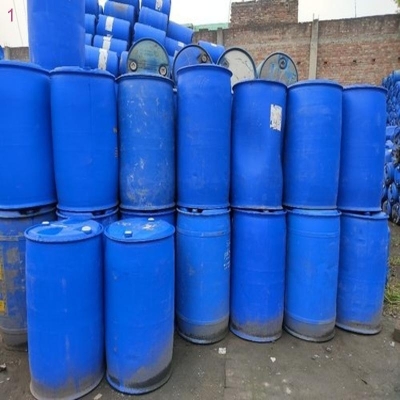-
Categories
-
Pharmaceutical Intermediates
-
Active Pharmaceutical Ingredients
-
Food Additives
- Industrial Coatings
- Agrochemicals
- Dyes and Pigments
- Surfactant
- Flavors and Fragrances
- Chemical Reagents
- Catalyst and Auxiliary
- Natural Products
- Inorganic Chemistry
-
Organic Chemistry
-
Biochemical Engineering
- Analytical Chemistry
-
Cosmetic Ingredient
- Water Treatment Chemical
-
Pharmaceutical Intermediates
Promotion
ECHEMI Mall
Wholesale
Weekly Price
Exhibition
News
-
Trade Service
A few days ago, researchers at Stanford University in the United States successfully developed a lithium battery
that can prevent explosion.
Bao Zhennan, a professor of materials science and engineering at the university, said that people have tried a variety of strategies to solve the problem of accidental explosions of lithium batteries, and this time the new lithium battery can be turned off before overheating and quickly restarted
after the temperature drops.
Traditional lithium batteries consist of two electrodes, between which are liquid or gel-like electrolytes carrying charged ions
.
Punctures, short circuits, or overcharging can all generate heat
from the battery.
If the temperature reaches about 150 degrees Celsius, the electrolyte will catch fire and cause an explosion
.
At present, several technologies have been used to prevent batteries from exploding, but these technologies are irreversible, meaning that the battery cannot be used
again after overheating.
To solve this problem, the research team turned its attention to nanotechnology
.
In the experiment, they covered nickel particles with nanoscale bumps with a layer of graphene and embedded these particles in
an elastic polyethylene film.
In order to conduct electricity, those raised nickel particles need to come into contact with
each other.
But during thermal expansion, the polyethylene film is stretched, and these nickel particles are separated from each other, which makes the film no longer conductive and the current does not pass through the battery
.
Compared with previous methods, the research team's design of this lithium battery provides a reliable, fast and reversible strategy
that combines high performance and safety.
A few days ago, researchers at Stanford University in the United States successfully developed a lithium battery
that can prevent explosion.
Bao Zhennan, a professor of materials science and engineering at the university, said that people have tried a variety of strategies to solve the problem of accidental explosions of lithium batteries, and this time the new lithium battery can be turned off before overheating and quickly restarted
after the temperature drops.
Traditional lithium batteries consist of two electrodes, between which are liquid or gel-like electrolytes carrying charged ions
.
Punctures, short circuits, or overcharging can all generate heat
from the battery.
If the temperature reaches about 150 degrees Celsius, the electrolyte will catch fire and cause an explosion
.
At present, several technologies have been used to prevent batteries from exploding, but these technologies are irreversible, meaning that the battery cannot be used
again after overheating.
To solve this problem, the research team turned its attention to nanotechnology
.
In the experiment, they covered nickel particles with nanoscale bumps with a layer of graphene and embedded these particles in
an elastic polyethylene film.
In order to conduct electricity, those raised nickel particles need to come into contact with
each other.
But during thermal expansion, the polyethylene film is stretched, and these nickel particles are separated from each other, which makes the film no longer conductive and the current does not pass through the battery
.
Compared with previous methods, the research team's design of this lithium battery provides a reliable, fast and reversible strategy
that combines high performance and safety.







